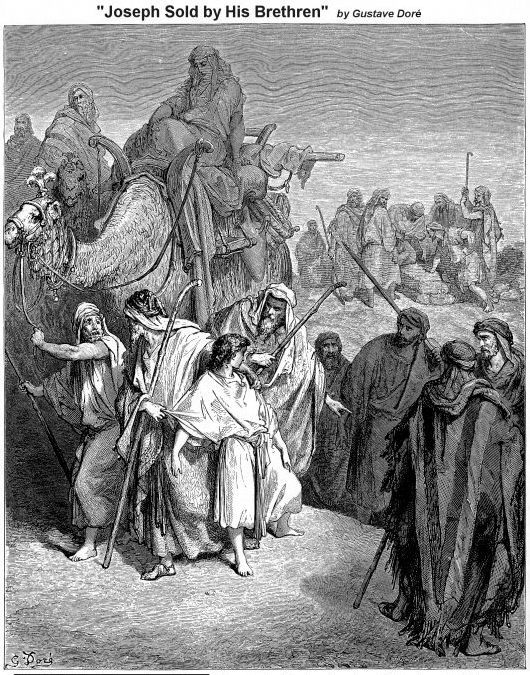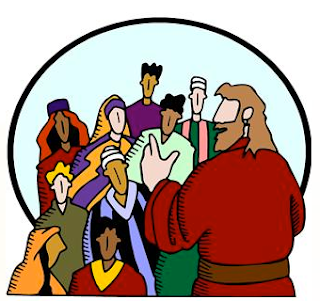Mary and Elizabeth
by Harold Copping - 1927
TO CHEW ON: "He has shown strength with his arm; he has scattered the proud in the thoughts of their hearts; he has brought down the mighty from their thrones and exalted those of humble estate; he has filled the hungry with good things and the rich he has sent empty away." Luke 1:51-53 ESV
Wow - could Bible women pray! The prayer of Hanna, another young mother (1 Samuel 2:1-10), and Mary's prayer in our reading today show that these godly women had keen insights about God and His ways.
A thought that occurs in both of these prayers is that the unlikely person will triumph because God comes to his or her aid.
Hannah prays that God will weigh and evaluate the unworthy actions that are masked by proud and arrogant speech. She boasts about Him giving strength to the feeble as He breaks the weaponry of the mighty. He feeds the hungry while those who were always full before end up hiring themselves out for bread. He gives he barren woman a complete family (seven children!) even as the mother of many is forlorn. She speaks of Him making the poor rich, exalting the lowly, raising the poor and needy to sit with princes - 1 Samuel 2:3-8.
Mary thanks God for raising her, a humble woman, to a position where all people will call her blessed. She boasts about God frustrating those with proud thoughts, bringing down the mighty from their thrones, sending the rich away empty while filling the hungry with good things - Luke 1:51-53.
These aren't selfish, vindictive prayers of needy women who want the tables turned for self-serving reasons. Rather, they are prayers of women for whom God has shown Himself strong in amazing ways (Hannah has borne a son after years of barrenness, Mary has recently become pregnant with Jesus—God in the flesh).
They are also pronouncements of faith saying, in effect, if God has done this for me, He can do this in any and every situation.
They are above all, prayers that proclaim trust in God over riches, position, power or natural ability, to change impossible situations.
What is my impossible situation today? What is yours? From personal needs involving ourselves, our families and friends, to big requests for our nation and the world, let's let the faith of Hannah and Mary inspire us to bring our impossible circumstances to God, who has the power and resources to turn them on their heads.
PRAYER: Dear God, than You for the faith and inspiration of Hannah and Mary, simple women who trusted You to do the impossible. Help me to trust You for my impossible thing (___) today. Amen
MORE: Feast of Visitation
Today the church celebrates the Feast of the Visitation of the Blessed Virgin.
The liturgy for this day begins with this collect:
"Father in heaven, by your grace the virgin mother of your incarnate Son was blessed in bearing him, but still more blessed in keeping your word: Grant us who honor the exaltation of her lowliness to follow the example of her devotion to your will; through Jesus Christ our Lord, who lives and reigns with you and the Holy Spirit, one God, for ever and ever. Amen."***********
Unless otherwise noted all Scripture quotations are taken from the New King James Version®. Copyright © 1982 by Thomas Nelson, Inc. Used by permission. All rights reserved.





















